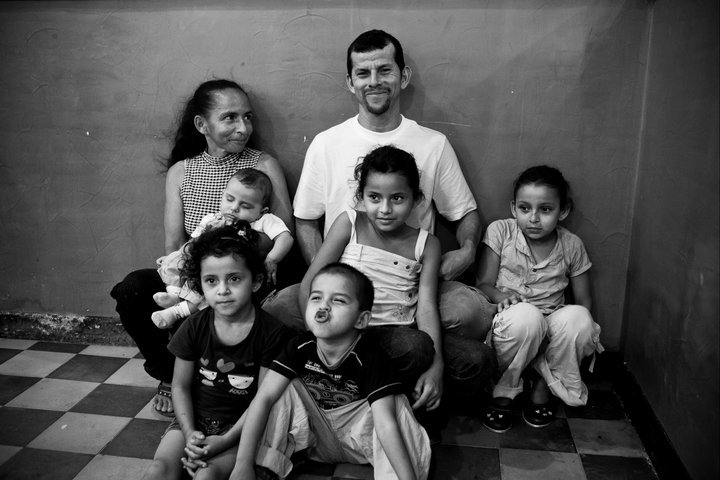At Washington D.C. Film Premiere of “Leaving La Floresta,” Filmmakers Take on U.S.-Colombia Drug, Trade Policies

On the evening of October 13, 2011, the Washington-based Institute for Policy Studies (IPS) premiered a newly made independent film, “Leaving La Floresta.” The film follows a group of young men who document their journey in Colombia -the home of the largest population of internally displaced people in the world- in order to learn more about the causes of this displacement. Part travel documentary, part advocacy journalism, the movie focuses on the role that the United States’ Plan Colombia coca fumigation policies play in the process of this vast migration to urban centers of the country.
The filmmakers seem aware of their limitations as outsiders, acknowledging their intrinsic privileges as well as their naïveté from the start. They show genuine reverence for the Joya family, who they showcase as an example of the deplorable human consequences of U.S.-Colombian drug policy. Olga and Abelardo Joya, parents of five, were forced to abandon their cacao farm in the Colombian countryside and relocate to an urban slum after their property was contaminated by herbicides intended to be sprayed on coca fields in the area. Their story is both touching and compelling.
The film’s screening was followed by a presentation promoting both Colombian agrarian organizations and the organization founded by the filmmakers, Give Us Names. The latter group advocates for alternatives to drug policies -such as crop fumigation- that inevitably result in displacement. The filmmakers are also working to raise both awareness and funds for families like the Joyas in an effort to support their return to rural areas of their country.
Two Give Us Names founders, Dan Roge and Michael Christmas, spoke passionately about their efforts and determination to use “the power of storytelling to connect well-resourced nations to nations of need.” In doing so, they hope to draw the attention of “soccer moms” and others who may not normally take notice of the frightening dimensions of internal displacement in Colombia. They also are wisely seeking to foster the efforts of long-standing progressive agrarian organizations in Colombia, such as the Asociación Campesina del Valle del Río Cimitarra (ACVC), which received Colombia’s National Peace Prize in 2010. By supporting well-established local organizations, they may be able to avoid the common pitfalls of many young U.S. citizens who venture into developing nations hoping to make a difference.
Also present at the premiere was IPS Fellow Sanho Tree, who illuminated the larger issues at play in U.S.-Colombia drug policy. He highlighted the near-impossible position in which Washington has placed rural farmers in that country. Farmers are told they cannot grow coca, a crop which can be easily refined into a small but immensely lucrative amount of coca paste on site, then transported for relatively short distances in a single backpack. Instead, they must attempt to “grow huge quantities of fruit that they must transport with vehicles they don’t have, on roads that don’t exist, to markets they don’t have access to.” Tree noted that these circumstances are compounded by trade agreements like NAFTA and the “disgraceful” new trade promotion agreements that were recently signed into law by Congress and analyzed by the Council on Hemispheric Affairs and other research organizations.
The film and the organization behind it are hoping to spotlight the grave social issues redolent in Colombia, which are far too often ignored by mainstream U.S. media outlets. This situation of neglect persists despite the ostensibly strong ties that exist between the two nations.

